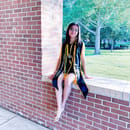You’ve probably seen personality test graphics popping up on the internet or your Instagram feed. Right now, the Enneagram’s nine-type system is wildly popular, along with the Myers-Briggs system with four-letter personality types (INFJ, ESTP, ENFP, etc.).
These are just two examples of personality systems, but all of these tests offer insights into the way you think and behave. Although one “type” will never capture all your unique traits, most people identify with one or two types that best explain their personality. Plus, it’s fun to try typing the people in your life — not to limit them to a type, but to better understand who they are.
Most of the time, personality tests are used in this way — to improve our relationships with ourselves or with others. However, as a college student, I believe that an important topic (which I haven’t seen discussed much) is how we can use personality theory to customize effective and enjoyable study plans for ourselves! Based on my research and experience with the Myers-Briggs system, here are some study tips for each Myers-Briggs trait in the four-letter system.
- Introversion vs. Extroversion
-
Although we all spend time extroverting and introverting, introverts gain energy from time alone or with a few people, while extroverts thrive in large groups. If you’re an introvert, you may learn better when studying alone, eliminating distractions in the environment, and reflecting on your material. If you’re an extrovert, you’ll likely enjoy study groups and discussions with fellow students!
- Sensing vs. Intuiting
-
Sensors tend to focus on concrete details and practical applications of knowledge, so they may benefit from specific examples, flashcards, charts and timelines — any study tactic that makes knowledge more tangible. On the other hand, intuitives prefer possibilities and abstract theories, so they may benefit from mind maps and brainstorming “what if” questions about their study content. (As an intuitive myself, those two strategies help me learn!)
- Thinking vs. Feeling
-
While thinkers focus on logic and reason to make decisions, feelers emphasize people and circumstances when making judgments. Feelers benefit from learning people’s stories; for instance, if you’re taking a health sciences course, reading stories of people who have experienced these health conditions will help you relate to and remember your material. Thinkers, who thrive on facts and logic, may be comfortable in fact-heavy courses. Having “mock debates” with yourself may also help. For instance, in a literature class, take different positions on the author’s purpose and try to defend each perspective with evidence. This can help you organize information into different lines of thinking.
- Judging vs. Perceiving
-
Judgers enjoy setting deadlines and planning ahead (they aren’t necessarily judgmental, as the term “judger” implies). As a judger myself, I thrive with a good planner — it helps me create mini-deadlines so that I can meet larger due dates. On the other hand, perceivers are adaptable and like to keep options open. You will likely enjoy having a flexible schedule — try writing down your main responsibilities, but allow yourself to adjust your daily schedule as new opportunities arise. This way, you aren’t locked into a rigid plan, yet you can also honor the due dates that you or others have set.
I hope these tips have given you some ideas about how to study based on your personality type! You will find tons of general tips if you Google “study tips,” but it’s important to remember that your study strategy should be as unique and individual as your own personality and preferences.



